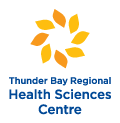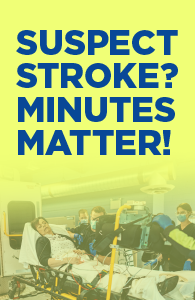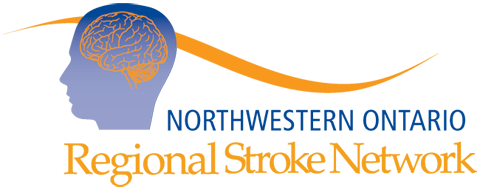Aphasia after Stroke – An Invisible Impairment

Stroke is often perceived as a condition that paralyzes one half of a person’s body, impairing their ability to move. However, stroke can also lead to other less visible impairments, such as aphasia. Aphasia is defined as a disorder of language that may affect a person’s ability to speak, understand, read and/or write.1
One in three stroke survivors are diagnosed with aphasia1, and there are over 100,000 Canadians living with aphasia today.1 In Northwestern Ontario an estimated 90 new people will be diagnosed with this devastating disorder each year. The number of people with aphasia is expected to increase significantly in the coming years as the population ages.1
Because aphasia interferes with a person’s ability to participate in conversation, it impacts almost every relationship and life activity. Research has demonstrated that educational seminars for people with aphasia and their families/caregivers may improve knowledge and may also be beneficial for enhancing social participation and family adjustment.2
The Northwestern Ontario Regional Stroke Network has committed to building capacity in aphasia expertise by supporting health care providers and caregivers to obtain education in this area. Two Speech-Language Pathologists from Northwestern Ontario received funding to obtain “train the trainer” status in Supported Conversation for Adults with Aphasia (SCA™). Training communication partners in SCA™ has resulted in improved access to conversation and increased social participation for individuals with aphasia.2
Two SCA™ introductory workshops have been held in Northwestern Ontario (Thunder Bay, Kenora) facilitated by trained Speech-Language Pathologists, with 51 participants receiving education in the aphasia program over the last year. The next SCA™ workshop will be held in Thunder Bay on October 27, 2016. The 1/2 day workshop includes a mix of theory and practical activities designed to help people who “know more than they can say” express their opinions and feelings in a way that makes them feel valued & heard. The workshop is geared to conversation partners for adults with aphasia such as family members, health care providers, or friends. More information and registration details for the workshop are available at www.nwostroke.ca under Education and Events.
For More Information:
Esmé French, Regional Stroke Rehabilitation Specialist, Northwestern Ontario Regional Stroke Network nwostroke@tbh.net
References:
- The Aphasia Institute: aphasia.ca
- Evidence-Based Review of Stroke Rehabilitation:Chapter14-Aphasia http://www.ebrsr.com/sites/default/files/Chapter14_Aphasia_FINAL_16ed.pdf






